“We’re facing a disease for which there’s no treatment,” said Dr. Kevin Tracey, a neurosurgeon who heads the Feinstein Institutes for Medical Research at Northwell. “Think of what that means. We’re ramping up with preparations to have the hospitals filled up with people in every bed. Some of them dying of a disease, surrounded by doctors and nurses who don’t know what to do because they have never seen the disease. No one has the treatment.”
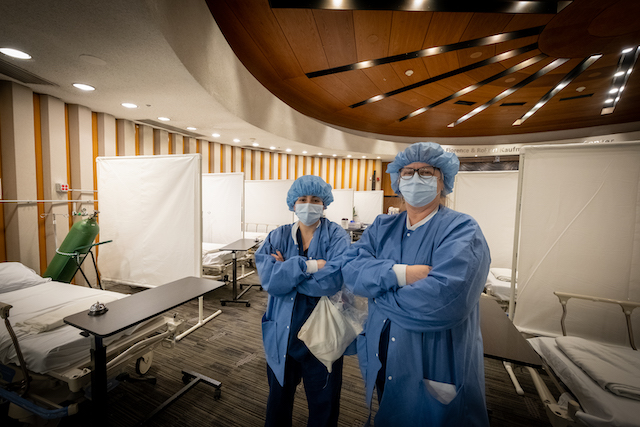
The situation, said Tracey, is a tragedy. For a medical researcher, it also creates an obligation because “this is a research problem.” And a piece of a potential solution lay all around Tracey in Northwell’s twenty-three hospitals, which were about to be full of very sick COVID patients—a unique frontline setting for scientific testing. At Northwell, we were in the US epicenter, and others who would later experience the virus would be learning from what we did. Our obligation was to research and educate.
On Friday, March 13, as the virus swept into the New York area, Tracey made the decision to set up a series of COVID clinical trials to better understand the virus and search for therapies. Tracey and his Feinstein Institutes colleagues Meredith Burcyk and Jon Cohen, along with Dr. Christina Brennan as the medical leader, established the outlines of a COVID clinical trials unit within Feinstein with two objectives: “To produce reliable data through rigorous scientific research and to send a message of hope to patients and doctors that we are working on it.” By May 1, we had started six different trials and enrolled over 850 patients with support from more than two hundred investigators, coordinators, nurses, and other personnel.
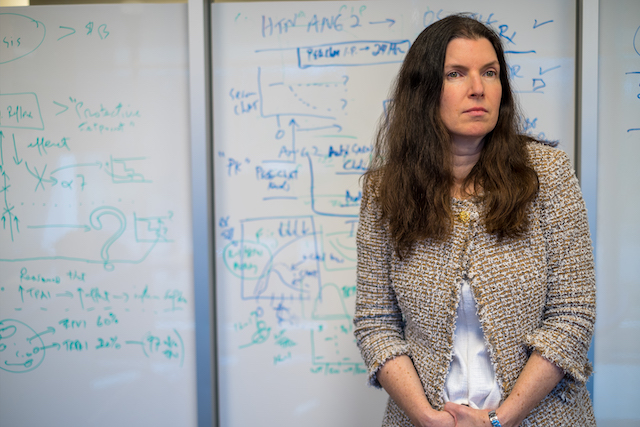
Redeployment of the troops, which had been so important in the medical units, would work in research as well. Many Feinstein researchers had been running clinical trials on other medical questions, but their patients were unavailable—since the hospitals had been cleared of just about everyone except COVID patients—putting those trials on hold. That freed up a number of scientists who Tracey recruited to start looking into aspects of the coronavirus.
By the end of the day that Friday, the plans were laid out, and by the next morning, the team went about executing it. We were fortunate to have Tracey in this role leading the research. He had long ago established himself as one of the elite biomedical researchers in the world, with expertise in the areas of inflammation, sepsis, and the neuroscience of immunity. He had made a particularly important contribution in creating an essentially new field known as bioelectronic medicine, and, with his colleagues, developing devices to replace anti-inflammatory drugs in clinical trials of rheumatoid arthritis. Clinical trials of this work have enabled some patients with crippling inflammatory diseases to regain a significant degree of movement and overall health.
In setting up coronavirus trials, Tracey worked with Drs. Mark Jarrett, David Battinelli, and Thomas McGinn on the logistics for such research. As Mark Jarrett said, it was important to move quickly. One of the most important lessons of the crisis, said Jarrett, is to “get patients into studies as quickly as possible. By spring we had so many sick patients that we were an ideal location for trials, and we engaged in a number of these, testing different potential remedies. It was important to try and get eligible patients into the trials because we were hungry for data on what might actually work.”
There are some potential treatments for COVID-19 that, while unproven, possess certain antiviral properties that make them worth trying. Some of these potential remedies are drugs that were developed to treat other conditions, but that scientists think may possibly work on the coronavirus. There was an air of desperation among patients, doctors, and researchers that pervaded the search for a treatment, given the nature of the situation. It is very difficult for doctors to tell patients who are close to dying that there is nothing to be done. “We all understand the ‘compassionate use’ issues of medications and treatments,” said Jarrett, “but, a vast majority of our patients should be in studies looking at these drugs because in this case we may get a second peak in the late fall, early winter that could be worse than this peak.”
The idea was to conduct gold-standard trials and share knowledge with the world. “We committed to a path of scientific rigor, ethical and regulatory compliance, FDA oversight, and sponsorship,” said Tracey. “We focused on randomized clinical trials. If we learned something, the rest of the world would also learn from what we learned. We committed to this path from day zero. We didn’t want to get into this chaos of anecdotes that was created around hydroxychloroquine and other things.”
Having been involved in scores of trials through the years and authoring more than 350 research papers, Tracey was well-known throughout the pharmaceutical world. On Saturday morning, March 14, he reached out to scientists he knew at the biopharmaceutical companies on the forefront of COVID research, Regeneron and Gilead. Regeneron had been studying interleukin 6 inhibitors (IL-6) and Gilead was starting trials on a new antiviral drug called Remdesivir. He connected with the chief medical officer at Regeneron on Saturday and they agreed that Northwell would conduct a trial to test whether their product, sarilumab, an IL-6 inhibitor, would be effective in preventing damaging inflammation during COVID.
Tracey told the Regeneron official that he would work with them on a trial if Regeneron would “commit to telling me that you have drug available, and that your team will work nonstop until we get the patients treated in the next few days. Because we have people dying in our hospitals and they have no drugs.” Teams from Regeneron, Northwell, and the FDA worked through that March weekend and by Monday, Tracey and colleagues were reviewing a research protocol. The process of setting up a trial and treating the first patient normally takes two or three months. In this instance the Northwell and Regeneron teams had done it in three days.
We moved quickly recruiting patients. In a typical clinical trial about five to ten patients per year are enrolled. On the Regeneron trial at Northwell we enrolled 216 patients in a few weeks thanks to the work of the COVID clinical trials unit and the principal investigator, Negin Hajizadeh. “It takes hours of work to screen people, get them enrolled, give the drug in the right way, at the right time,” said Tracey. “We had a small army of people now working on about six clinical trials at five of our major hospitals: Staten Island, Lenox Hill, North Shore, Long Island Jewish, and Northern Westchester.” Of the first four hundred patients in the Regeneron trial, 226 were at Northwell hospitals.
To be eligible for the trial, patients had to have severe pneumonia and low blood oxygen. They also had to be hospitalized and progressing toward needing a ventilator but not yet intubated, or in the ICU and already on a ventilator. “These were extremely sick people,” said Tracey. Deciding whether to participate in a trial made for highly emotional decisions by patients’ families. Doctors explained to them that number one, the trial drug might not work, and number two, their loved one might get a placebo instead of the drug being tested.
The trial was barely a few weeks old when, suddenly in early April, Regeneron froze the initiative. The company was reviewing data from the first wave of the trial and aiming to reopen it with a larger group. But the data, said Tracey, was disappointing. The remedy was not working in early-stage patients, causing Regeneron to switch gears and focus the trial on only the very sickest patients.
Tracey, along with colleagues Drs. Marcia Epstein and Prasat Malhotra, also worked with Gilead Sciences on a trial for the drug Remdesivir. Tracey agreed to enter into the trials knowing it involved a significant amount of work for the already overworked Northwell staff, but he is a scientist first and foremost and sought a path to study possible therapies in a rigorous way. He was emphatic with Gilead, as he had been with Regeneron, that they would do the trials on one condition: “Our patients are dying, and I need you to tell me you are going to send me as much drug as I can use.” Regeneron had followed through on this commitment, but Gilead never sent more than a few doses at a time, frustrating Tracey and his team. At Northwell we enrolled only a fraction of the patients we could have included in the Gilead trial due to the limited supply of the drug made available to us.
During the week of March 17, while working on both the Regeneron and Gilead trials, Tracey received a call from a physician colleague he had known for twenty-plus years. Dr. Michael Callahan, who had been at the meeting Dr. Tracey attended twenty years earlier advising defense department officials about preparing for a pandemic, and who was in China during the coronavirus outbreak, told Tracey that there was some important data that might hold a clue for a new trial. It seemed that patients in China who had been diagnosed with acid reflux (heartburn) fared far better when infected by the virus than others. What was different about these patients was that all were taking famotidine for their reflux disease, an over-the-counter drug sold under a variety of brand names, including Pepcid.
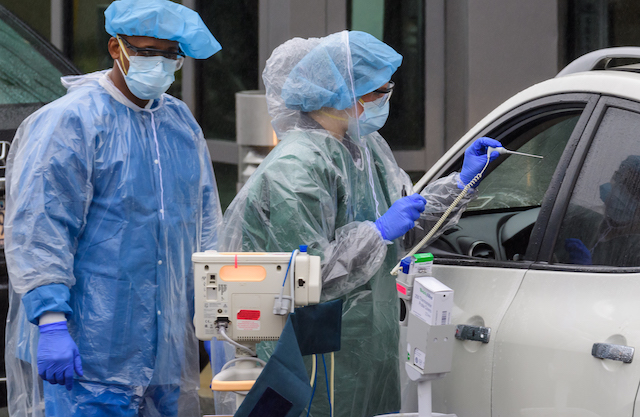
Dr. Callahan said he understood that we at Northwell were getting “slammed” by the pandemic and Dr. Tracey explained that we had many people dying in our hospitals and no proven therapies with which to treat them. Callahan explained what the data in China showed about patients on famotidine. He added that computer modeling indicated it was possible famotidine interacts with one of the virus proteins and while they didn’t know if that would kill the virus, a study was reasonable. The COVID clinical trials unit went to work setting up the trial.
At HHS, Robert Kadlec, assistant secretary for preparedness and response at the US Department of Health & Human Services, asked Tracey to move quickly to conduct a research study into the efficacy of famotidine as a therapy for COVID-19. The trial, led by principal investigator Dr. Joseph Conigliaro, commenced on April 7 after Northwell quietly purchased a significant supply of the drug. This took time in light of the fact that the trial required an injectable form of famotidine, which is rarely used, so that hospitalized patients could be given the drug intravenously. The study was funded by a contract from the Biomedical Advanced Research and Development Authority (BARDA).
Tracey was pleased to have the study up and running, but it was not exactly an ideal study in his view. Politics had interfered with the shape of the trial. President Trump’s insistent promotion of hydroxychloroquine as a remedy had influenced patients and doctors to demand the drug. This was an unfortunate situation. There was no scientific evidence that hydroxychloroquine could work but the president had been promoting it nonetheless. Worse still, a later study on hydroxychloroquine in April was halted when it was learned that some patients had developed irregular heart rhythms while on the drug. Nonetheless, at the time the famotidine trial began, hydroxychloroquine had suddenly become the current “standard of care” and therefore had to be tested along with famotidine.
In an April 26 article in Science magazine, Tracey was quoted on the matter: “Is it good science? No. It’s the real world.” And in the real world there would be no pure trial comparing famotidine to a placebo. Instead, the trial would test famotidine plus hydroxychloroquine or hydroxychloroquine alone. “The reason for hydroxychloroquine as spelled out in the documents,” said Tracey, “is that hydroxychloroquine was the standard of care because the president said it would work, so patients and families followed suit.” Tracey’s Northwell colleague Dr. McGinn said there was no scientific evidence to suggest hydroxychloroquine might work other than a small French study that was poorly done in that it evaluated forty patients in a non-randomized way. Even that study showed minimal benefit if any. “Anybody that knows anything about randomized trials, control trials, knows it was just crap,” said McGinn. “And that became counted as the only drug that works. It should have gone to a larger, randomized trial to prove benefit. But, you know, on the other hand, people were desperate. They wanted something. Their loved ones were dying.” Tracey judged the French study “a complete failure.”
As Tracey put it, “the standard of care was determined by politics.” Then suddenly, in the midst of the trial of hydroxychloroquine with and without famotidine, hydroxychloroquine was judged to no longer be the “standard of care.” The new standard would be Remdesivir, based on comments by Dr. Anthony Fauci that it had demonstrated some clinical value.
As of July 10 when the book went to press the results of the famotidine trial were being analyzed.
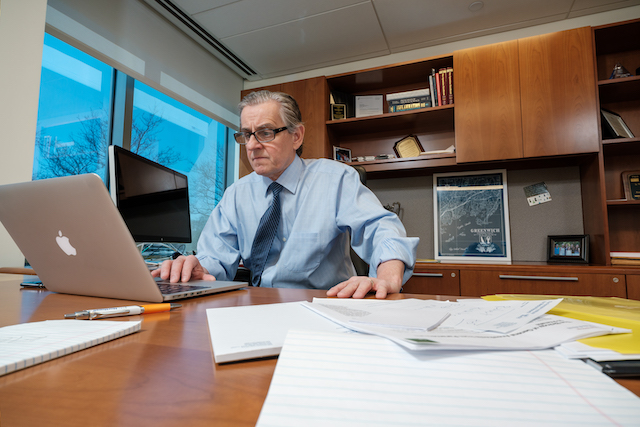
Tracey worries that science in the United States is “under siege. It has been underfunded and under appreciated for decades.” And at the height of the pandemic a drug becomes the “standard of care” because the president speculates, without any scientific evidence, that it might work. Has respect for science eroded over the years? Tracey believes it has, and he holds out hope that the coronavirus pandemic may be a wakeup call or, as he put it, a “Sputnik event,” referring to when American scientists accelerated the space race after the Russians launched Sputnik.
“If you want a cure for COVID-19, fund science,” he said. “Not with a stimulus package. Make up for the seventeen years of scientific funding in the US not keeping up with inflation. There has got to be a reality check that this will happen again unless we make the right investments in our scientific infrastructure. Scientific infrastructure can eliminate this disease.”
Above is an abridged excerpt from Leading Through a Pandemic by Northwell President and CEO Michael Dowling and Charles Kenney.
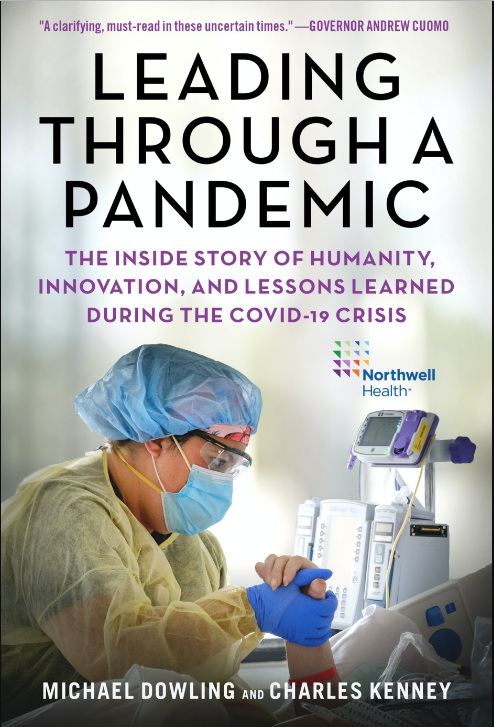
Leading Through A Pandemic is available at Barnes and Noble and Amazon.
Read more about the doctor leading the research at Northwell Health in Dr. Kevin J. Tracey: Inventing the Future of Medicine.
Return to the Salute to Northwell.

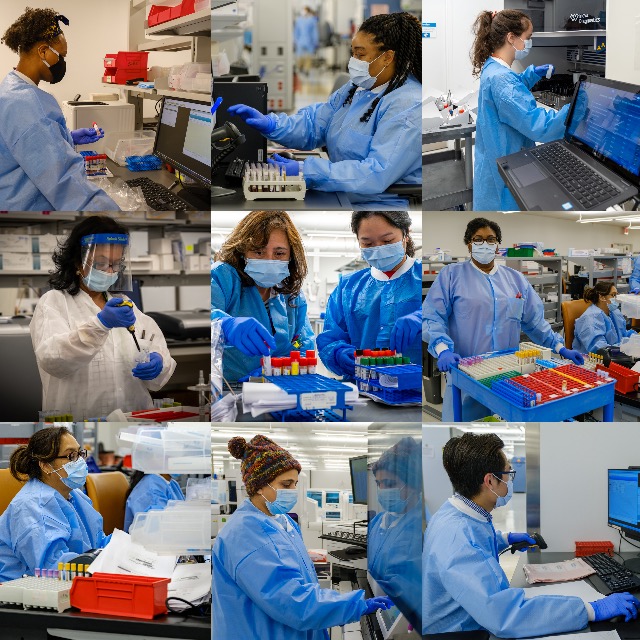
Leave a Reply